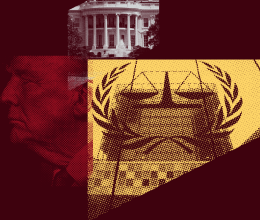PORTLAND – The ACLU of Maine and the law firm Goodwin Procter LLP last night filed a lawsuit against the city of Portland, charging that a sweeping ban on being in medians is unconstitutional. The ban was enacted by the city council in July and went into effect in August.
“While this ordinance was framed as an effort to protect public safety, in reality it prohibits a significant amount of peaceful, non-threatening, constitutionally-protected speech,” said Zachary Heiden, legal director of the ACLU of Maine. “The city of Portland should not be in the business of telling people where they can and cannot exercise their constitutional rights, and it should certainly not be banning speech in an area that has traditionally been used as a forum for public dialogue.”
The ACLU and Goodwin Procter filed the lawsuit on behalf of Michael W. Cutting, Wells Staley-Mays and Alison E. Prior, Portland residents who regularly engage in protected speech in areas defined as medians by the ordinance. Mr. Cutting and Mr. Staley-Mays are political activists who have long stood in medians holding signs expressing their political opinions. Ms. Prior is homeless, and has stood in medians soliciting donations in order to buy food.
The ordinance prohibits standing, sitting and staying in medians except to cross the street. It defines a median as any “paved or planted area of public right-of-way, dividing a street or highway into lanes according to the direction of travel.” According to the complaint, the ban is unconstitutionally overbroad, and by adopting it the city has significantly restricted the plaintiffs’ constitutionally protected speech, in violation of the First and Fourteen Amendments to the U.S. Constitution and Article I of the Maine Constitution.
“We are pleased to be working together with plaintiffs and the ACLU of Maine in challenging the city of Portland’s ordinance,” said Kevin Martin, a partner in Goodwin Procter’s Boston office. “Our goal is to reaffirm the right of all Portland residents, from the homeless to protestors to politicians, to safely and responsibly use medians to communicate effectively with their fellow citizens.”
The ACLU of Maine has long warned the city that such a sweeping ban would raise constitutional concerns.
The complaint is available online at: www.aclumaine.org/media/716







